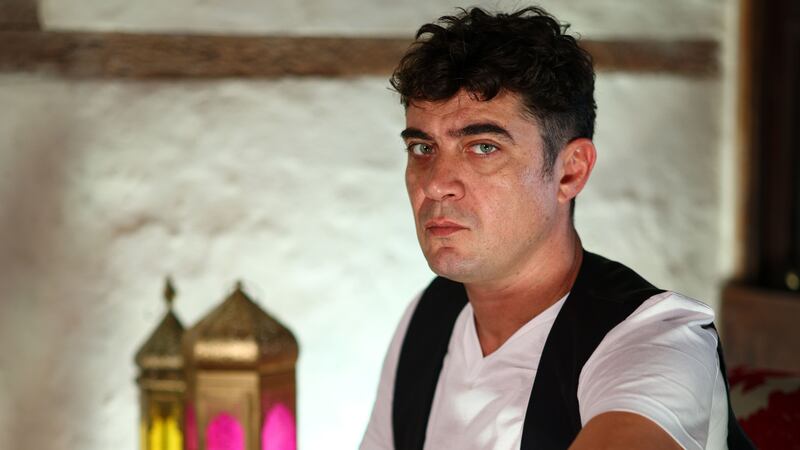A researcher’s warning that elements of Ireland’s abortion system are in danger of collapse seems alarming. Still, from the sketchy information we have so far about Dr Deirdre Duffy’s plank of the abortion law review – a study of the experiences of hospital doctors, GPs, lawyers and strategic managers – there will be few big surprises.
Duffy’s work with a Manchester Metropolitan University team is one of three big components of the review. A second plank includes evidence from women who use the service. A third processes the results of a public consultation involving 7,000 submissions.
The chairwoman of the review, barrister Marie O’Shea, may be underwhelmed to see a complex multipronged year-long project reduced to Dr Duffy’s summary assessment: “Better than before the referendum but it is a postcode lottery.” Still several problems were clear from Jennifer Bray’s report of Duffy’s findings.
There are big shortages of hospital consultants, facilities and staff. There is “outright confusion” around how many GPs actually provide abortion services. Some tasked with handling the calls for a patient’s referral from the community seem to be part-timers or solo operators who can get sick themselves or head off on a break. Roughly the same obstacle course faced by many people who may hit a sudden health crisis this week, but in a very particular realm of sensitivity. The ambition for excellence that should be the hallmark of such a service is sadly lacking, Dr Duffy suggests. So far so predictable, it seems.
READ MORE
What will make very interesting reading in her study is the extent to which such striving for excellence may be stymied by conscientious objections. Despite suggestions to the contrary, Duffy’s research includes discussions with health professionals and settings who do not provide abortion services.
Her team has uncovered evidence of conscientious objections being interpreted in ways that conflict with the regulations, she says. It is almost impossible, for example, to challenge someone who breached their obligations in a hospital. Remove them from the ward for unprofessional conduct and there may be no one to fill the post. What happens to professional discipline in those situations?
The frequency of such episodes, the form they take, where they are most likely to occur and – most importantly – their effect in practice on patients in crisis will be illuminating.
[ Abortion system could collapse, says researcher involved in review of lawsOpens in new window ]
The law on conscientious objecting is clear. It provides firm backing for medical professionals who wish to opt out; it also requires them to make arrangements for the transfer of care of the pregnant woman to another practitioner. A high proportion of doctors strongly object to providing referral or information.
In advance of the inevitable blazing rows, it’s worth noting that the now four-year-old law has not led to any floodgates opening
The Irish College of General Practitioners put flesh on this soon after the 2018 referendum. A survey suggested that two-thirds of GPs would not provide abortion services; one quarter said they would prefer not to refer patients to a colleague. Dozens of GPs staged a walkout from an extraordinary general meeting over the proposed law.
By 2020 just 373 GPs had signed contracts with the HSE to provide early medical abortions. By the following year according to ICGP research, this had climbed to 385, out of an estimated 3,496 GPs actively practising in Ireland. One in nine.
At a Doctors for Life conference last January, its chairman, Dr Ronan Cleary, confirmed that the vast majority of GPs in Ireland were not performing abortions, yet still argued for a strengthening of the law allowing medical practitioners to refuse terminations on grounds of conscience.
It will surprise no one when Dr Duffy’s study demonstrates how coverage remains a significant barrier to accessing services in rural areas and marginalised communities. Four years on, almost half the maternity sites are not providing termination-of-pregnancy services. Some lack a willing consultant obstetrician, others have a shortage of willing theatre nurses. Hopefully the full review will bring not just clarity but human experience to these numbers.
The law on freedom of conscience is not some uniquely Irish construct. Best medical and legal practice internationally recognises this as the appropriate way to balance a woman’s right to access healthcare and a medical professional’s conscience-based right to opt out of it. Any other approach would privilege the right of a medic in a way that abandons and does harm to the pregnant person, as Prof Fiona de Londras argued in 2018; no system could realistically countenance so unbalanced an approach and it is difficult to understand how one’s conscience could demand it.
[ Review calls for Ireland’s abortion rules to be relaxedOpens in new window ]
In advance of the inevitable blazing rows, it’s worth noting that the now four-year-old law has not led to any floodgates opening. In the three years from 2019, a total of 19,000 women availed of the services, out of 24,000 who had gone for initial consultations. Some anti-abortion commentators suggest that for at least some of the 5,000 who didn’t proceed, the contentious three-day waiting period (required before getting access to abortion medication) must have encouraged a change of mind. The same voices simultaneously argue that the HSE system is a conduit to unquestioning pro-choice doctors. Prof Fergal Malone, former master of the Rotunda, has simply noted that about 20 per cent of all pregnancies end in miscarriage. He has also described the three-day wait as “stigmatising” and “paternalistic”.
That many women might take a similar view is hardly staggering news.













